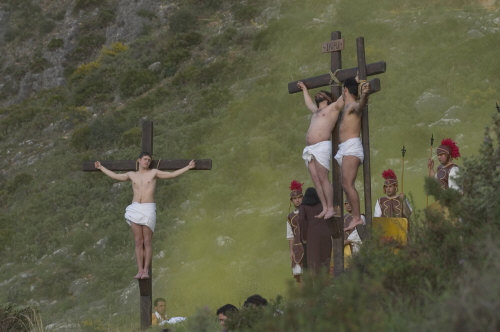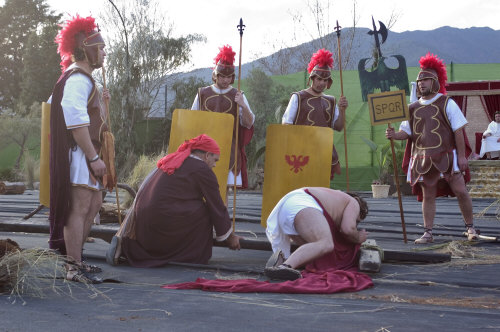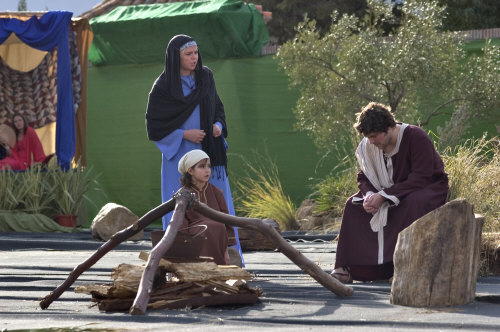|

ISTÁN - FIESTAS
Easter (Holy Week) (depending on Christian
calendar)
Istan’s Easter Week stands out thanks to the
staging of El Paso (procession), which has
its origin in the 17th century. This
representation was suspended during the
years previous to the Civil War but it never
disappeared from people’s hearts so it was
reinstated in 1980. These are dramatizations
of passages from the Old and New Testaments
which end with the crucifixion of the Christ
during Good Friday. It has the unconditional
participation of the entire village, with
more than a hundred actors.



La Tomilleria (Sunday
previous to 29th of September)
Dressed in traditional costume of Istan, the
pilgrims, here called Tomilleros, referring
to the thyme covering the fields, make their
way to the shrine of San Miguel, which is
located in a cave. They gather there in
order to have a day of merry celebration
inviting anyone wishing to join in. At five
o’clock, they all return to the town
carrying the Saint on their shoulders.
Fair of San Miguel
(Saint Michael) (closest weekend to the 29th
of September)
Days of joy in the village of Istan, where
the town square turns into a continuous
party. From 8 am the music band strolls
through the streets followed by the town
people until they reach the square, where
the band carries on playing until the
following day. You sense an atmosphere of
festivity where the popular flavour is
preserved by holding competitions, games and
an old tradition such as the ribbon bicycle
race.
“Tostoná” of All
Saints Day (1st of November)
The residents of Istan gather inside their
houses, farmyards and on the streets to
prepare the traditional “Tostoná” or
roasting of chestnuts, a popular celebration
where there is great emphasis on singing and
drinking aguardiente (the local firewater).
The young people spend the day in the
country and on their return they stain each
other’s faces with the soot from the
roasting pans.
“Zambombeos” (during
Christmas)
During winter, the “zambombeos” are used to
announce the arrival of Christmas: The
locals gather in spontaneous groups and go
around the streets singing traditional
carols, with the help of traditional drums
(zambombas) and tambourines.
Gastronomic Festival
and Fiesta of Los Quintos (weekend previous
to 28th of February)
Although they have a different significance
and origin, they are currently held
together, the one complementing the other.
The Gastronomic Festival originated not too
long ago, from the collaboration of the
Adult Education Centre and the Agua Clara
Women’s Association. It offers a sampling of
traditional dishes from the village, held in
the town square, served with orange juice
from the local orange groves. The fiesta of
Los Quintos started when the military
service was still normal practice and has
been maintained by the young men from each
"quinta" (draft) until the present day.
|